The Ultimate Guide to Internet Censorship
Table of Content
- 01 An Introduction to Content Monitoring and Internet Censorship
- 02 Why is Content Censored?
- 03 Censorship on the Internet
- 04 Countries with the Best and Worst Censorship
- 05 How Censored is Social Media?
- 06 How Censored are Online News Sites?
- 07 Censorship in Education
- 08 How is Online Censorship Achieved?
- 09 How to Avoid Censorship
- 10 Conclusion – How to Avoid Censorship in an Era of Censorship Enforcement
1. An Introduction to Content Monitoring and Internet Censorship
Online censorship is becoming an increasingly relevant topic as various actors vie for control over the free flow of information. The importance of free and independent news and information outlets cannot be understated at the present time, and the influence of a free internet has a profound effect on public opinion.
This has been strongly evidenced by the WikiLeaks scandals, where a considerable amount of information was made available due to the actions of a Whistleblower. Without a free media where this information could be disseminated, none of the stories would have come to light and the public would have been none the wiser.
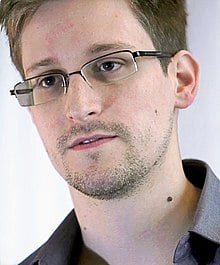
Government authorities branded Edward Snowden a “terrorist” and are seeking to extradite him so he can be sentenced for reporting factual information on the actions of high-profile individuals. It is widely believed that what was revealed constitutes a small percentage and that much more remains hidden from the public.
On a practical level, there is also considerable evidence that the majority of online activity is now monitored. This is not just the case with censorship in China, which has a more overt and obvious policy with regard to internet censorship. It also happens in the USA and Europe, though on a much more subtle level.
Google is essentially a massive database full of user queries often linked to a Gmail address (which is itself often linked with a phone number) and corresponding to the user IP address. It is no secret that Google, Facebook, and other conglomerates voluntarily give user data to the NSA. Google even had, at one time, a special Dropbox server for the NSA.
Yahoo and Microsoft were also revealed to have been collaborating with the NSA and giving away data on private citizens. How much data actually passes from Google to the NSA is not actually known, however, it is a safe assumption that the NSA has access to all of Google’s data, either directly or indirectly.
After all, the NSA was found to have colluded with AT&T to intercept the worlds transfer of communications, violating not just the privacy of US citizens (including Skype calls and messages) but potentially the residents of China, Europe, Russia, and the Middle East.
While this does not strictly constitute online censorship, the fact that activity is being monitored is often the first step and an integral part of the censorship process. In this way, powerful players can monitor current trends and patterns in terms of public beliefs and opinions. It can help them to select what to censor and to what degree.
2. Why is Content Censored?
Online trends are very profitable as governments and corporations can mine data in order to gain market insights. It could become very accurate in the prediction of electoral processes. This data can also serve to empower the government to stamp out any activity that it deems contrary to its established narrative. Again, this is most prominently evidenced in China, where public dissent is going to be nipped in the bud before it can become a threat to the established hierarchies. Tiananmen Square is an example, where university students were massacred because they exercised their right to peaceful protest.
The primary reason for online censorship is to prevent the emergence of views that run against the ideals of the party in power. Movements and groups are created online which can grow to be very powerful, and social media and the internet, in general, is an immense tool.
Without it, we would not be aware of some of the various scandals and atrocities being carried out across the world. These atrocities take place not only in third world countries with dictators but in the upper echelons of Western societies including politicians, banks, corporate executives, and elite families.
Of course, there is also ‘clean’ censorship. There is definitely such a thing as being overly democratic. For example, journalist Caithlin Johnstone voiced her opinion when she stated that “the world will be a better place when [John McCain] is better off dead”. This is taking freedom of speech too far. This sort of language (hate speech) is also accounted for in the legislation of most democratic countries.
Any wording which could serve to incite harm to an individual or ethnic group can result in legal action and is often censored by moderators on forums and social media. There is certainly a place for censorship of the right kind, and it is necessary. But it is a delicate balance and mass censorship or interference by government or corporate entities is to be avoided. This generally results in oppression and the wrong kind of censorship which only serves to help the authorities enforcing the censorship.
ISPs will routinely block content pertaining to child pornography and in some jurisdictions, judges can order that articles that constitute “hate speech” are to be removed from the internet. In France and Germany, Nazi propaganda is blocked, as well as sites that question the existence of the Holocaust.
While these types of censorship appear to be both necessary and reasonable, there is always a risk of going too far. In France, for example, a 2009 bill was passed that would allow certain users to be suspended from the internet for 12 months. In Romania, an ISP can be fined up to $200,000 for allowing access to a site that has been blacklisted.
3. Censorship on the Internet
The question remains as to how censored the internet actually is. It should be noted at the outset that the internet is not a giant uniform place with a globally standardized series of norms and values. In some regions, censorship can be very severe (such as Turkey) and in others, such as the West, censorship is largely regarded as light. However, this is mainly because the depth of activity monitoring and tracking in the West is far more advanced and sophisticated than it is in the East and poorer regions.

Western facilities and their intelligence agencies are generally regarded as highly adept at extracting data on any individual. They can easily cross-correlate a vast database of information, such as Google searches, IP address on various devices, games consoles logins, flight tickets, debit card purchases, and much more.
Any online device is essentially a signaling antenna where all activity is recorded. Your device represents a node on a large network (the internet) and when a hacker or government agency gains access to your node, they then can find out pretty much everything else. In the case of the government, they have near unlimited power with the assistance of the credit card agencies, social media sites, Microsoft, Yahoo, Google and others who are being pushed to assist.
It is difficult to find exact statistics with regard to online censorship. After all, this information is going to be largely obtained from the internet itself. However, consider some of the following statistics gathered from statistica.com and other reputable online sources:
- 58% of internet users live in countries where bloggers were put in prison for sharing content on political, social, or religious issues.
- 45% of internet users live in countries where posting satirical writing, cartoons or funny videos can result in a prison sentence (this is not the case in Europe or the USA where satire is protected by the constitution).
- Iceland and Estonia are regarded as the countries with the lowest levels of internet censorship, followed by Canada, Germany, Australia, and the USA. China, Syria, and Iran are rated as the worst. Turkey could soon be joining this list.
- 61% of internet users live in countries where criticism of the government/military/ruling family has been subject to censorship.
- 38% of users live in countries where social media and messaging applications have been blocked in the past year.
- Globally, 64% of citizens are concerned about the government censoring internet content.
- According to The Verge, 66% of global citizens live under government censorship, citing a report from the Freedom House think tank organization. Similarly to Statistica, the report indicated that China was the most censored nation on the planet, followed by Syria and Iran.
- Globally, 27% of all internet users live in nations where people have been arrested for publishing, sharing, or merely liking content on Facebook.
- In over 38 countries in 2015, arrests were made based on social media posts.
4. Countries with the Best and Worst Censorship
The most commonly cited and respected report on global internet censorship was conducted by the Freedom on the Net Reports, a movement created by the Freedom House Organization. These reports provide analytical data and research on various countries and assign each country a rating. The findings of these reports are indicated above, with Estonia and Iceland being regarded as the lease censored and China being the worst offender. The countries are also divided into free, partly free or not free. Of the 65 countries tracked in 2017, 25% were free, 43% were partly free, and 32% were not free.
The 2012 Report noted that Azerbaijan, Libya, Malaysia, Pakistan, Rwanda, Russia, and Sri Lanka were at particular risk of internet censorship. In terms of the best ratings, Iceland scored 6, Estonia 7, Canada 16, Germany 18, Australia 19, and the USA 19. China scored 88 (the highest), Syria 86, and Iran 82. Ethiopia, Cuba, Vietnam, Saudi Arabia, and Bahrain also scored very poorly and are countries with high internet censorship rates. Additionally, censorship in Turkey, censorship in Indonesia, and censorship in China are getting worse, not better.
| Iceland – 6 | China – 88 |
| Estonia – 7 | Syria – 87 |
| Canada – 16 | Iran – 82 |
| Germany – 18 | Ethiopia – 82 |
| Australia – 19 | Cuba – 81 |
| United States – 19 | Uzbekistan – 78 |
| Japan – 22 | Vietnam – 76 |
| Italy – 23 | Saudi Arabia – 73 |
| France – 24 | Bahrain – 72 |
| Georgia – 24 | Pakistan – 69 |
5. How Censored is Social Media?
Social media is becoming increasingly censored. WhatsApp is a popular messaging application that is being banned in various jurisdictions. This is primarily because governments cannot compel the service to hand over user data unlike FaceBook and other applications. Additionally, all WhatsApp messages are encrypted, so that intelligence agencies cannot listen in on private messages with as much ease as the majority of other messaging applications.
According to a Freedom on the Net article titled ‘Manipulating Social Media to Undermine Democracy’, governments around the world have increased their attempts to censor social media. The state of internet censorship seems to be getting worse and social media is now a prime target for governments –
“The Chinese and Russian regimes pioneered the use of surreptitious methods to distort online discussions and suppress dissent more than a decade ago, but the practice has since gone global. Such state-led interventions present a major threat to the notion of the internet as a liberating technology”
“Online content manipulation contributed to a seventh consecutive year of overall decline in internet freedom, along with a rise in disruptions to mobile internet service and increases in physical and technical attacks on human rights defenders and independent media”
“Nearly half of the 65 countries assessed in Freedom on the Net 2017 experienced declines during the coverage period, while just 13 made gains, most of them minor”
The article highlighted that Venezuela, Turkey, and the Philippines were among 30 countries where governments were found to have employed thousands of “opinion shapers”. What this means is that they essentially paid people to post on social media accounts in the hope of shaping public opinion towards a particular perspective. Since 2009, the attempts by national governments to control online discussions in such a manner has grown year on year.



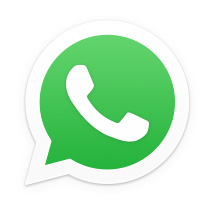
The rise of automated fake accounts and spambots is also a matter of concern as there may come a time when the process of social media manipulation can be largely automated. But the attacks are becoming more widespread and sophisticated with each passing year, and governments around the world are working hard to influence public opinion on social media.
This is primarily because nobody is using mainstream news outlets anymore to gain information, such as print newspapers or television news publications. People are turning to alternative news sites such as Medium, YouTube, and social media to get their information. While the press and television are controlled and centralized, the internet is much less monopolized. Manipulating public opinion via social media spamming and censorship of content is regarded as the most effective tactic for the new era of content dissemination.
6. How Censored are Online News Sites?
In the West, there is not a large degree of censorship with regard to online news sites. Obviously, news sites such as the Wall Street Journal and the Financial Times have certain agendas and biases which are reflected in their writing. For example, they may often represent corporate interests. But they are not strictly censored by the government and are not kept on a tight leash.
Additionally, there are many alternative news outlets that have cropped up on YouTube and other channels which are completely independent and free. While many are claiming that YouTube is censoring popular news channels along with social media, this is mainly paranoia and hysteria.

For a true sense of censorship of online news, it is necessary to travel to third world countries and to China where online news is tightly immeshed with government policy. Egypt, Afghanistan, and China have all ramped up online censorship. Online censorship in Turkey has also gotten much worse. Erdogan has traditionally kept the physical media under strict control, as reported by The Economist but he has now extended his reach to all online news outlets as much as possible.
In these countries, it is simply not possible to post news that runs contrary to the dominant ideology. This is very much in contrast to the West, where, despite all complaints, it is entirely possible to post negative comments on all politicians and ruling elites. This can and has been done, and social media is especially unkind to President Trump. This same commentary would result in a quick prison sentence in countries such as China or Turkey, where online censorship is extreme.
It should be noted that while Western online news sites are not censored, they are all going to portray news in a certain way. There is a set of standards on how the news is reported. For example, a heinous crime is going to be described as an ‘assault’ or a ‘murder’. There is never going to be any graphic details on such events as it would upset viewers. The news is always going to be selective and can only give a few bare details on complex issues. In this respect, all content is going to be censored to a degree, but there is a difference between a free press using its discrimination and a government or mega-corporation that compels the press to say what it wants.
7. Censorship in Education
While censorship on social media is a matter of primary concern, there is also a significant amount of censorship in education. This can have a disastrous effect on children who are then unprepared for reality. Again, this can be observed most commonly in China, where students and even adults travel to democratic countries for the first time and find that the world is nothing like what they have been led to believe by the Chinese curriculum. This phenomenon is not just specific to China but happens in national schools all over the world to greater or lesser degrees.
Turkish dictator Erdogan fired 21,000 university professors, a common technique used by dictators who understand the impact a free education system can have on mainstream thought. These university professors will have studied European history and it is not possible to issue mainstream propaganda and rewrite history if there is an independent system exposing the truth of the situation.

Wikipedia was also blocked with Erdogan’s rise to power, as well as Facebook, YouTube, and Google. Turkey is still in the process of handing out lengthy prison sentences to journalists under the country’s anti-terror and anti-defamation laws. YouTube was allegedly blocked on the basis that it featured videos insulting Ataturk, the founder of modern Turkey.
In the USA, there are attempts to rewrite history by removing all accounts of political dissent from official accounts. This is done to promote a unified sense of patriotism in support of all activities completed by the national government, such as an invasion in the Middle East. All accounts of protest and dissent are brushed over to make it appear as if the USA has always been a united nation striving to establish worldwide peace and unity. Students in high schools across Colorado refused to accept a this censored version of history via mass protests against the manipulated curriculum which amounts to selective history.
Universities also suffer from this type of selective history, though to a lesser extent than high schools. There is also a very large and public debate in the US surrounding biology and ethnicity at the current time, where biological facts are being rewritten so that gender is to be legally regarded as a social construct instead of a biological phenomenon. Jordan Peterson, a prominent Canadian psychologist, was among the first to point out this occurrence in a number of heated debates. It amounts to a suppression of hundreds of clinical trials which are indicative of the observable biological differences between the two genders. And yet in most of the modern types of university modules, these studies are being ignored in favor of new age ideologies which have not been backed up by a single reputable study. Censoring a curriculum without a valid reason is illegal as per US case law, in both high schools and universities.
8. How is Online Censorship Achieved?
There are four primary ways to achieve online censorship. These are IP Blocking, Keyword filtering, DNS poisoning and imprisonment for offenders.
- IP Blocking
Governments can order Internet Service Providers (ISPs) to block certain sites and domains. Failure to comply with the government order could result in serious fines. Because there are not very many ISPs in a given country as well as on a global basis, the sector is quite monopolized. This means that the government only has to compel a few of the larger ISPs to follow the IP blocking directions. IP blocking is one of the most common modes of censorship. - Keyword Filtering
Keyword filtering is another form of censoring information. All searches that contain certain keywords are automatically blocked. An example of this is that in China, the social messages application WeChat will actually block chats that contain keywords that have the potential to undermine the ruling party in China. Search engines can also be ordered to perform this type of keyword filter. On a country-wide basis, this requires a complex intrusion detection system (IDS). - DNS Poisoning
This is alternatively known as DNS (domain name service) spoofing, DNS tampering, or DNS hijacking. This means that corrupt DNS data is diverted to a different IP address. Again, China provides the perfect example. People who try to access sites such as Facebook are diverted to a different site. Additionally, people who try to access these sites could face a visit from the authorities, under certain circumstances. Domain names are more difficult to change compared to IP addresses, which is why DNS poisoning is more effective than IP blocking. DNS poisoning and keyword filtering can often be deployed together for a more comprehensive censorship regime. - Fines and Imprisonment
Nothing works quite as well as throwing somebody in prison for publishing or reading information that goes against the ideology of the ruling party. This is often seen in dictatorships or extremely authoritarian structures such as China. China’s internet police are estimated to be at around 50,000. These are people who track and monitor activity, and issue warrants and arrests for “offenders”. This creates a sense of fear surrounding online activity and these countries do not waste any time. While this police force once operated behind the scenes it is now out in the open. The aim of this police force according to Chinese authorities is to “purify the internet”.
9. How to Avoid Censorship
There are a number of ways to avoid censorship, some more effective than others. Consider the following in order to maintain a good digital practice. The fact of the matter is that censorship is going to increase and you are going to need to protect your online identity as much as possible in the years to come.
The Virtual Private Network
The VPN is the most direct and effective means of avoiding censorship of all kinds. Essentially, the device you are using is given a new IP address in a different location. If you are in a country that bans a certain site, you can change your IP address using the VPN to a country which allows that site. They are often very simple to use and set up and all the information that you send is encrypted so anybody listening in will not be able to understand anything you are doing. However, they do have a tendency to slow down internet speeds, which can be frustrating. Nord VPN, IP Vanish, and Express VPN are among the most highly-regarded VPN services.
1. NordVPN
2. IPVanish
3. ExpressVPN
Know Your Rights
It can be very helpful to know your rights when content that you publish is censored. Sometimes moderators might modify or delete a comment on social media. This can be in violation of legally established rules and principles surrounding free speech. Everybody using social media has free speech rights which they can exercise. People who have been unfairly censored should get vocal about the issue. This is the power of social media, that it can bring awareness to these types of injustice.
Choose the Right Search Engine
There are now a wide variety of private search engine options coming out to meet the demand for privacy and anonymity. Admittedly, Google is the best search engine with the most efficient algorithm. However, this gap has closed in recent times and Google is also one of the least private search engines. Appropriate alternatives include Duck Duck Go, Swiss Cows, and Start Page. These search engines do not track or store any data on users.
The reason that Googles’ algorithm is so efficient is that it tailors the results towards you. It knows your search history and displays ads and results based on prior data obtained. So when using a privacy-based search engine with no idea who you are, the results can appear strange, but they are actually more objective.
Choose the Right Social Media
Some social media channels are much worse than others when it comes to censorship. Facebook is certainly one of the worst choices. They have a history of scandals, namely selling user data for profit. CEO Mark Zuckerberg told a colleague that he would give him information on anybody at Harvard, having all of their pictures and dates of birth. While Facebook may not have the best ethos, as evidenced by the Cambridge Analytica scandal, there are a number of alternatives with a focus on privacy. Many of these social media channels encrypt all data, do not store records, and do not display ads. Popular sites include Vero, Steemit, Ello, Mastodon, and Diaspora.
Encrypt Your Data
When data is encrypted, the government or corporations cannot decipher the message. All encrypted data can usually be cracked with enough computing resources. But this takes a lot of time and is not worth the effort to hack the large volumes of data on the internet, much of it harmless.
You don’t need to encrypt the data yourself, just use services that encrypt your transmissions. A VPN will encrypt the data on submission forms and on the sites you visit, private email services such as ProtonMail will encrypt all email messages and private messaging applications such as Whatsapp and Telegram Chat encrypt all messages. Encryption definitely works and is a key feature is preventing government censorship.
Use the Net Less
One of the best ways to avoid online censorship is to use the net less. Detaching from the whole charade can often be the most effective solution. It is likely that in the future, it will become increasingly difficult to evade censorship. It will be a world of artificial intelligence, with super smart devices that interact with each other.
Post less, detach from technology and leave behind nothing for the government to track. Buy local products in physical stores which will help the environment and which hamper large corporations who are actively tracking, monitoring and trading data. The recording and selling of customer of data online is a dirty business and all efforts should be made to stop supporting it via online spending habits.
Support Free Speech Organizations
It is essential to use a VPN, reduce time spent online, and use private social media and messaging services where possible. However, these are only stop-gap measures. Unless the populace voices their opinion and pushes back against the corporations and the government, the censorship is likely to increase and continue. One way to do this is to support free speech organizations in any way possible.
Avaaz is a global activism site that creates email-based movements on issues pertaining to the environment, free speech, and corporatism. They have beaten Monsanto in court and have successfully won political battles to protect the rainforest and endangered species. They also campaign for civil liberties such as free speech and freedom of association. There are many of these types of organization that are very effective, gaining hundreds of thousands of signatures within hours via email correspondence.
Support Free Media Organizations and Alternative Publications
Similar to the above, there are a number of free press organizations who campaign for a free and independent media. These include The Committee to Protect Journalists, The American Civil Liberties Union (ACLU), The Society of Professional Journalists, and The Freedom of the Press Foundation. A healthy society is absolutely dependent on a free press.
The West is quite fortunate that YouTube and the internet have not been heavily censored. Otherwise, the worldviews and opinions would be shaped by the narrative put forward by powerful elites, corporations, and governments. This is what they are actively seeking to do and there must be organizations in place that fight them on the grounds of internet censorship.
Use Distributed Ledger Technology
Distributed Ledger Technology (DLT – also called blockchain) is a new concept where transactions are recorded on a distributed ledger. Because nobody owns the blockchain and the servers are ‘distributed’ across the world, the government cannot censor anything. There is no company to sue and no people to investigate in many instances. Ethereum is an ecosystem which is aiming to create a decentralized internet without corporations owning any sites. Airbnb, Facebook, Twitter, Tripadvisor would be replaced with algorithmic substitutes with no vested interests.
There is an application called Liberdy.io which is aiming to give data back to consumers. The application manually checks what information companies such as Facebook, Amazon, and Google have on certain individuals. The individual can then demand the data back and offer to sell it to advertisers, instead of having the information harvested for free by these sites who sell it back and forth multiple times.
*Editor’s Note: Transparency is one of our core values at WizCase, so you should know we are in the same ownership group as ExpressVPN. However, this does not affect our review process, as we adhere to a strict testing methodology.
10. Conclusion – How to Avoid Censorship in an Era of Censorship Enforcement
While the state of internet censorship is getting worse, the future is better than one might expect. With the rise of distributed ledger technology, the internet itself, along with social media and news sites, is being decentralized. What this means is that there will be platforms set up that perform the functions of the internet and social media sites, but that is immune to government censorship. This is because they will run on algorithms and be owned by the public, on a series of servers distributed across the world.
In the meantime, best practices must be adhered to. A VPN is a necessity and is the first and most important step. After this, private messaging and social media sites should be selected over Facebook, Twitter, and Instagram. Gmail should be replaced with an encrypted email service and a private search engine should help to keep your queries safe.
If you perform these functions, you will have done your duty as a global citizen and will have completed a relatively good job of keeping corporations and government away from your data. For extra points, lend your voice and possibly financial support to free media and civil liberties organizations. I can begin employing distributed ledger technology as it becomes accessible, aligning with the concept of an unrestricted and open society. The more people that use these technologies, the faster the transition will be from an internet that can be censored, and an internet that is immune to censorship.


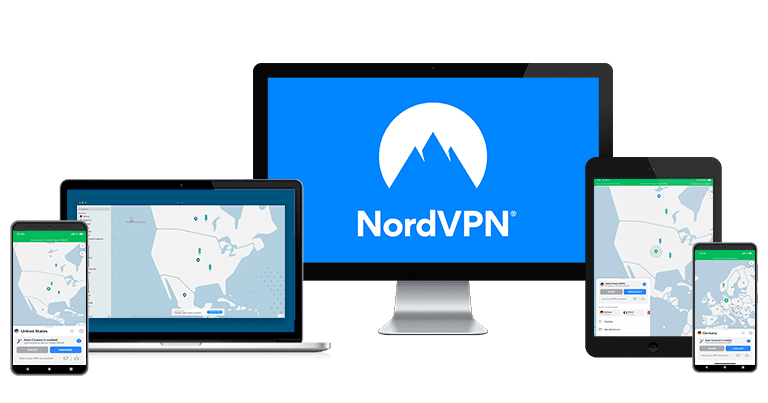

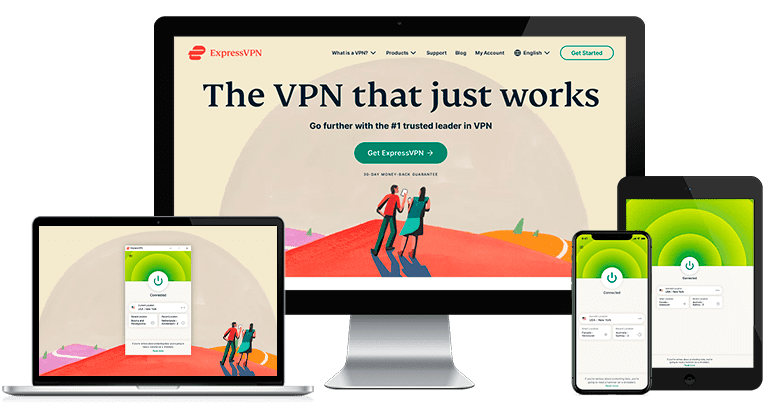
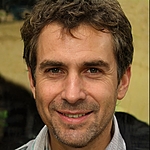


Leave a Comment
Cancel